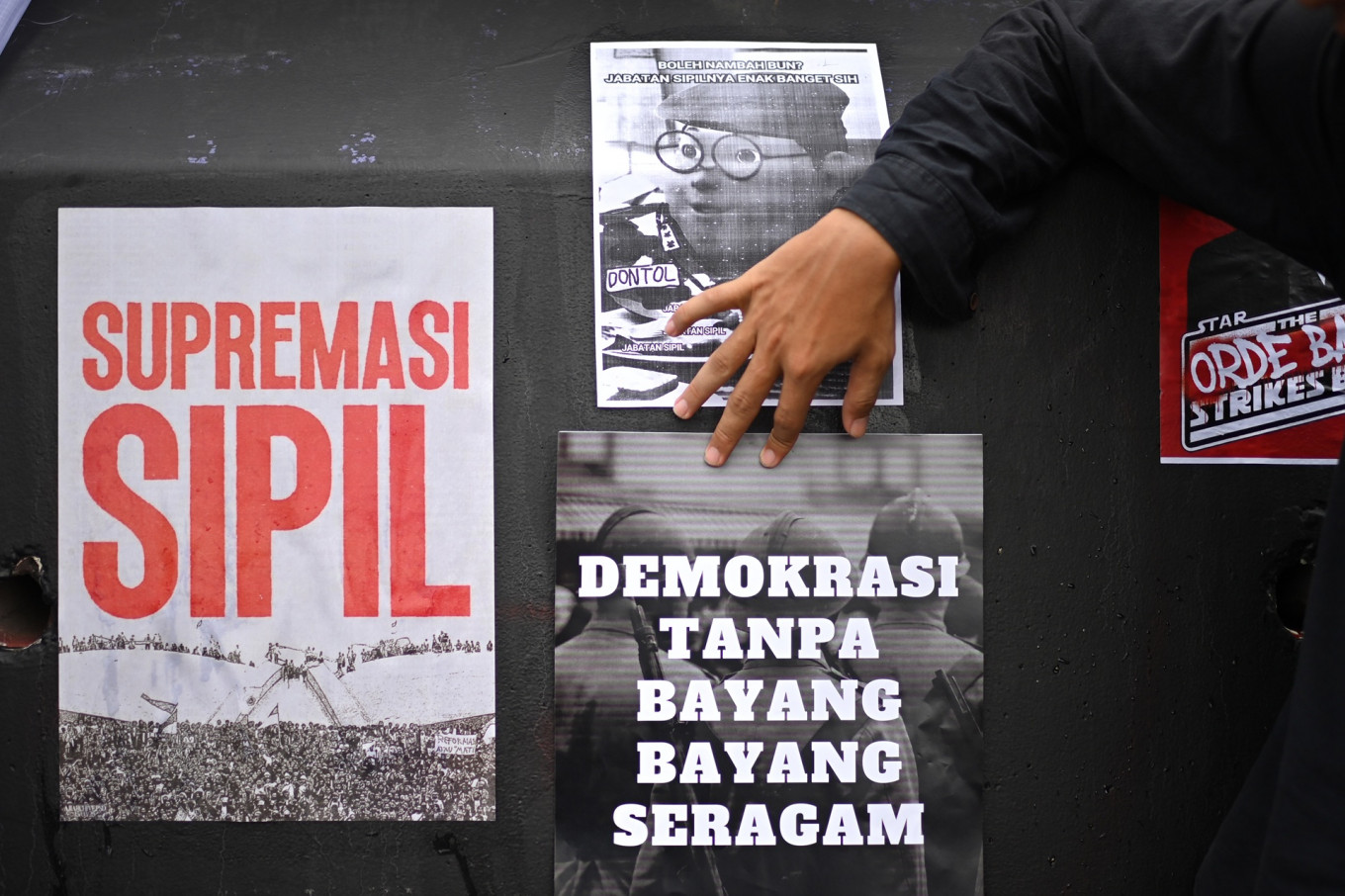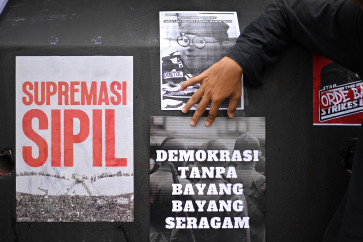Popular Reads
Top Results
Can't find what you're looking for?
View all search resultsPopular Reads
Top Results
Can't find what you're looking for?
View all search resultsMilitarism never ended in Indonesia, it hid in plain sight
The reforms in 1998 never sent the military back to its barracks. It merely hides behind the civilian administration.
Change text size
Gift Premium Articles
to Anyone
M
ilitarism in Indonesia has a long history. It has been chronicled and deep-rooted since the establishment of the New Order, whose ascent to power was marked by a communist purge in the mid-1960s.
Former president Soeharto’s New Order set the stage for the foundation of a political regime characterized by militarism. In fact, the rise of militarism during the New Order era paved the way for the adoption of a capitalist economic system in the country, in which the military provided stability to spur economic growth.
Militarism, however, is not simply allowing active military officers to occupy civilian positions in a constitutional system. Rather, militarism should be seen as the character or even the practice of a political regime that utilizes military force or instruments to maintain power in order to achieve economic benefits.
There have been many studies on militarism, especially in Indonesia. For example, in his book Indonesia: The Rise of Capital (1986), Richard Robinson states that the military’s relationship with economic activities during the New Order era was able to reawaken the capitalist system of the Indonesian economy.
The military, both institutionally and individually, was deeply involved in economic activities. That is, in the context of holding strategic positions in state companies or by shaping military businesses.
Similarly, Jun Honna in The Politics of Securing Khaki Capitalism in Democratizing Indonesia (2017) reveals that the Reform era did not necessarily put an end to militarism. Instead, militarism hid in the “armpit” or mechanism of civilian governance.
The two studies above show that militarism in Indonesia has never ended despite the sweeping reforms since 1998 that marked the fall of the New Order. Militarism has existed as a political reality in the country starting from the New Order era until today.



















